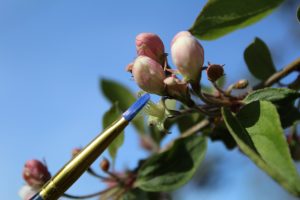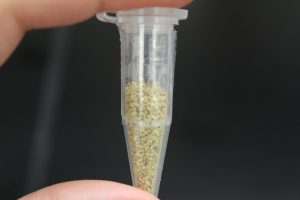Next-gen Genomics and Quantitative Genetics to Characterize Fire Blight Resistance in Apples: Bacterial diseases of fruit plants cause significant economic loss to growers and industry throughout the world. Among them, fire blight, caused by the gram-negative bacterium Erwinia amylovora, is one of the most destructive bacterial diseases. Significant progress has been made in understanding its mode of action, mechanism, interaction between host and pathogen, but it is still a major economic threat to pome production, especially as since its first report in 1780, in Hudson Valley, New York, it has spread to most apple producing regions of USA and the world. Over the past few years, biological research has been revolutionized due to increased throughput and reduction in genome sequencing costs and new tools like genome editing. Our research activities take advantage of next-gen genomic technologies, most importantly, genome and transcriptome sequencing, to characterize natural resistance in apples against fire blight and identify genomic regions and underlying genes using QTL and association mapping, using experimental populations and the great diversity of the apple germplasm planted in USDA, Geneva. We perform fire blight inoculation experiments in greenhouse and collect data on resistance/susceptibility in field. Ultimately, results of this research are used for developing strategies for genetic enhancement of fire blight resistance in apples by deploying resistance alleles in commercially favored backgrounds either through marker-assisted selection or transgenics.
Development of genetic mapping population: Pollen collection and crossings!


